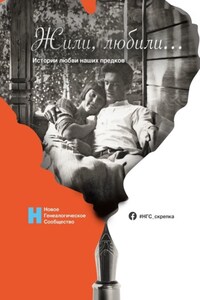‘Even now, after so many years, I can still remember Wilfred Thesiger as he was when I first saw him,’ was how Thesiger suggested I might begin his biography. To this he had added: ‘The rest is up to you.’>1
I met Thesiger for the first time in June 1964 at his mother’s top-storey flat in Chelsea. He was then aged fifty-four. He was sunburnt, tall, with broad shoulders and deep-set grey eyes. As we shook hands I noticed the exceptional length of his fingers. He wore an obviously well-cut, rather loose-fitting dark suit. I remember clearly that he smelt of brilliantine and mothballs. He spoke quietly, with an air of understated authority. His voice was high-pitched and nasal; even by the standards of that time, his rarefied pronunciation seemed oddly affected. He had a distinctive habit of emphasising prepositions in phrases such as ‘All this was utterly meaningless to me’. He moved slowly and deliberately, with long, ponderous strides; yet he gave somehow the impression that he was also capable of lightning-fast reactions. Later, I heard that he had been a source of inspiration for Ian Fleming’s fictional hero James Bond. Whether or not this was true, Thesiger, like Bond, was larger than life; and like Bond, he appeared to have led a charmed existence.
He introduced me to his mother, Kathleen, who had retired early to bed. Cocooned in a woollen shawl and an old-fashioned lace-trimmed mobcap, she lay propped up on pillows, with writing paper and books spread out on the bedcover within easy reach. Thesiger left us alone for a few minutes while he carried a tray with a decanter of sherry and glasses to the sitting room. It was then that his mother offered me the unforgettable advice: ‘You must stand up to Wilfred.’>2
Thesiger preferred to sit with his back to the window, in the dark shadow of a high-backed chair. At intervals he fingered a string of purple glass ‘worry beads’ that lay on the small table at his elbow. He talked energetically and fluently in reply to enquiries, but he himself asked few questions, and instead of taking up a fresh theme he sat quietly, staring at me, until I questioned him again. When I could think of nothing to say, or to ask, he reached again for the purple beads. Meanwhile he scarcely had touched his thimbleful of sherry.
His mother’s flat, to which Thesiger returned for two or three months every year, was like a catalogue raisonnee of his life and travels. Danakil jilis in tasselled sheaths hung beside framed black-and-white Kuba textiles from the Congo. There were silver-hilted Arab daggers and ancient swords in silver-inlaid scabbards. Medals honouring Thesiger’s achievements as an explorer and, in his youth, as a boxer were displayed in velvet-lined cases. A portrait of Thesiger painted in 1945 by Anthony Devas hung on the right of the sitting room fireplace. On the wall opposite, three tall glass-fronted cabinets held part of his collection of rare travel books devoted to Arabia, Africa and the Middle East. His mother had brought the cabinets to London in 1943 from their former home in Radnorshire. Thesiger commented proudly: ‘I can’t begin to imagine how my mother knew they would fit into this room. It was remarkable how she did this. But, there again, my mother is a very remarkable person.’>3
In a cupboard in Thesiger’s bedroom were stored the sixty or more landscape-format albums of black-and-white photographs which he often described as his ‘most cherished possession’.>4 As far as I remember he did not produce these albums during my first visit, but over the years I became very familiar with the wonderful images they contained. Only some time later did he show me his collections of travel diaries, notebooks and annotated maps describing his journeys. Not until some years after she had died did he encourage me to read letters he had written, many from outlying places, to his mother, who to her eternal credit preserved them with care, as she had preserved those Wilfred’s father had written a generation before.








